The brainchild of friends William T. Hornaday and George O. Shields, the Camp Fire Club of America was conceived as a social club–an opportunity for men who loved the outdoors to gather together regularly as they would around a campfire. In particular, Hornaday and Shields (Editor of Recreation magazine, who served briefly in a lobbying role for the New York Zoological Society) intended the CFCA as an outlet for sportsmen who did not meet the high standards of wealth, power, and social ranking required by the Boone and Crockett Club. [See our earlier post on the B&C Club.]
In the end, though, the CFCA’s virtues–among them “a camper’s freedom from restraint” and “no long speeches”–attracted several men who were also B&C Club members, including Theodore Roosevelt, forester and politician Gifford Pinchot, and artist Carl Rungius.
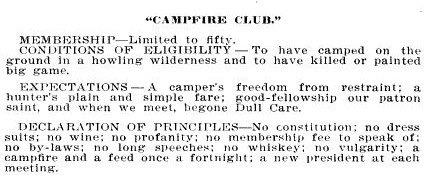
Text from early invitation to Camp Fire Club of America.
Members of the CFCA connected with nature through various activities, particularly hunting and photography. They met several times a year to, as one local chapter of the club put it, “renew and cement friendships and to bring out that good fellowship which is at its best and unrestrained only in the glow of the campfire.”
Constantly learning from each other, they also became a strong foundation for each other’s crusades, as documented in the Hornaday Wildlife Conservation Scrapbooks. CFCA members worked closely, for instance, with Hornaday on his campaign to protect Alaskan fur seals.
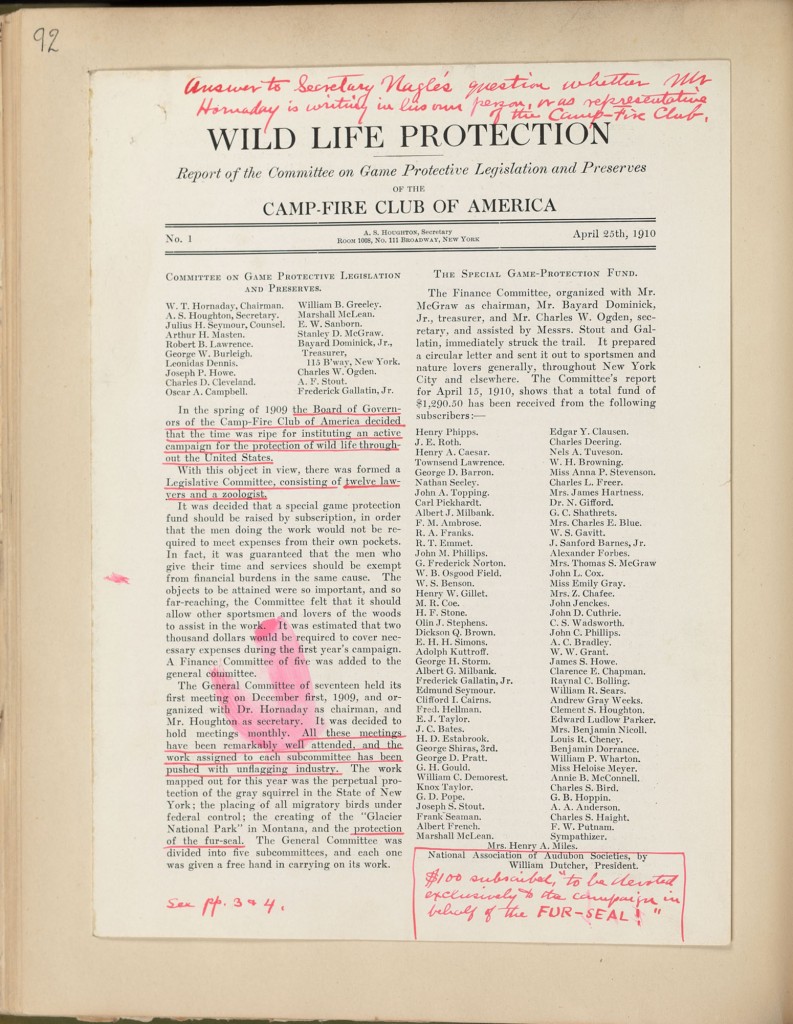
Wildlife Life Protection. CFCA Report, 1910. In Hornaday Wildlife Scrapbook Collection, Vol. 4. WCS Archives Collection 1007.
Hornaday used the Club’s name as a powerful leveraging force when writing to key decision-makers and political figureheads such as Senators James Dixon, Elihu Root, Charles Nagel, and George Bowers.
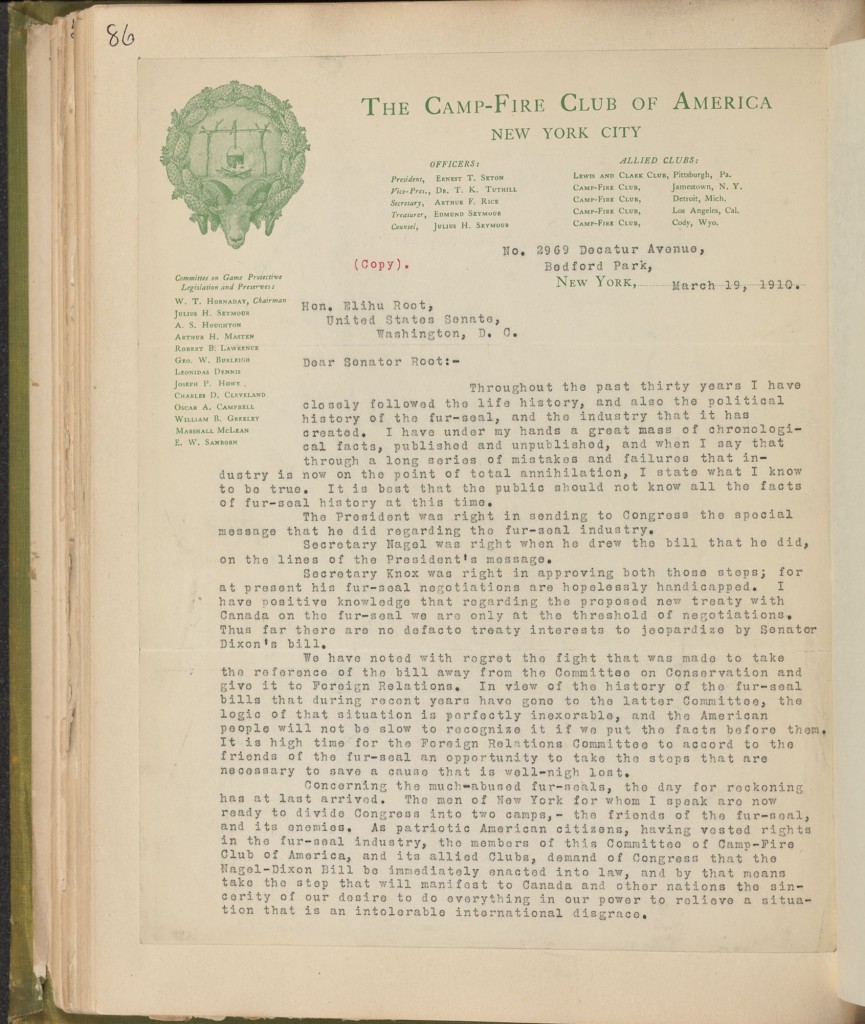
Letter from Hornaday to Elihu Root, 1910. Hornaday Wildlife Scrapbook Collection, Vol. 4. WCS Archives Collection 1007.
The accomplishments of the Club and its members held substantial weight with national figures, and Hornaday knew that representing himself as part of that team would bring his requests greater attention, even from President Taft himself.
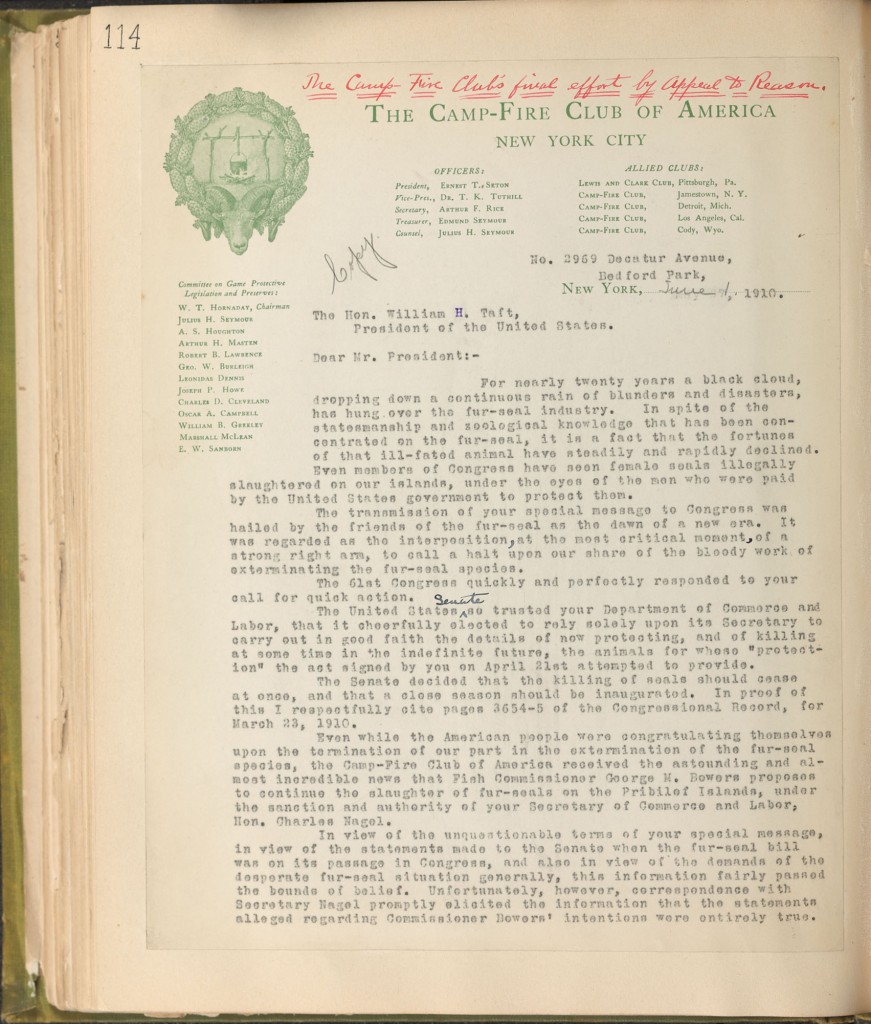
Letter from Hornaday to President Taft, 1910. In Hornaday Wildlife Scrapbook Collection, Vol. 4. WCS Archives Collection 1007.
In this case, Taft was unswayed by Hornaday’s appeal–though Hornaday’s partner in the Fur Seal Campaign, Henry Elliott, questioned whether Taft had actually received Hornaday’s letter.
Today, the Camp Fire Club of America remains active in wilderness preservation, continuing the legacy that Hornaday began over 100 years ago.
This post is by Janine Veazue, MLIS, who worked during Summer 2013 with the WCS Archives as a Metadata Cataloger on our Hornaday Wildlife Protection Campaign Scrapbook Project.
In addition to serving as the first director of the Bronx Zoo, William T. Hornaday (1854-1937) was a pioneering force in the American wildlife conservation movement, and he spearheaded several lobbying and fundraising campaigns in support of wildlife. These campaigns he documented in scrapbooks, and the WCS Archives has made many of these scrapbooks available online through the generous support of the Leon Levy Foundation.

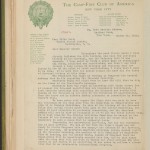
Looking for a cookbook don’t know when it was published however remember reading from in the mid seventies. Thank you
Hi David, Do you mean a Campfire Club cookbook?